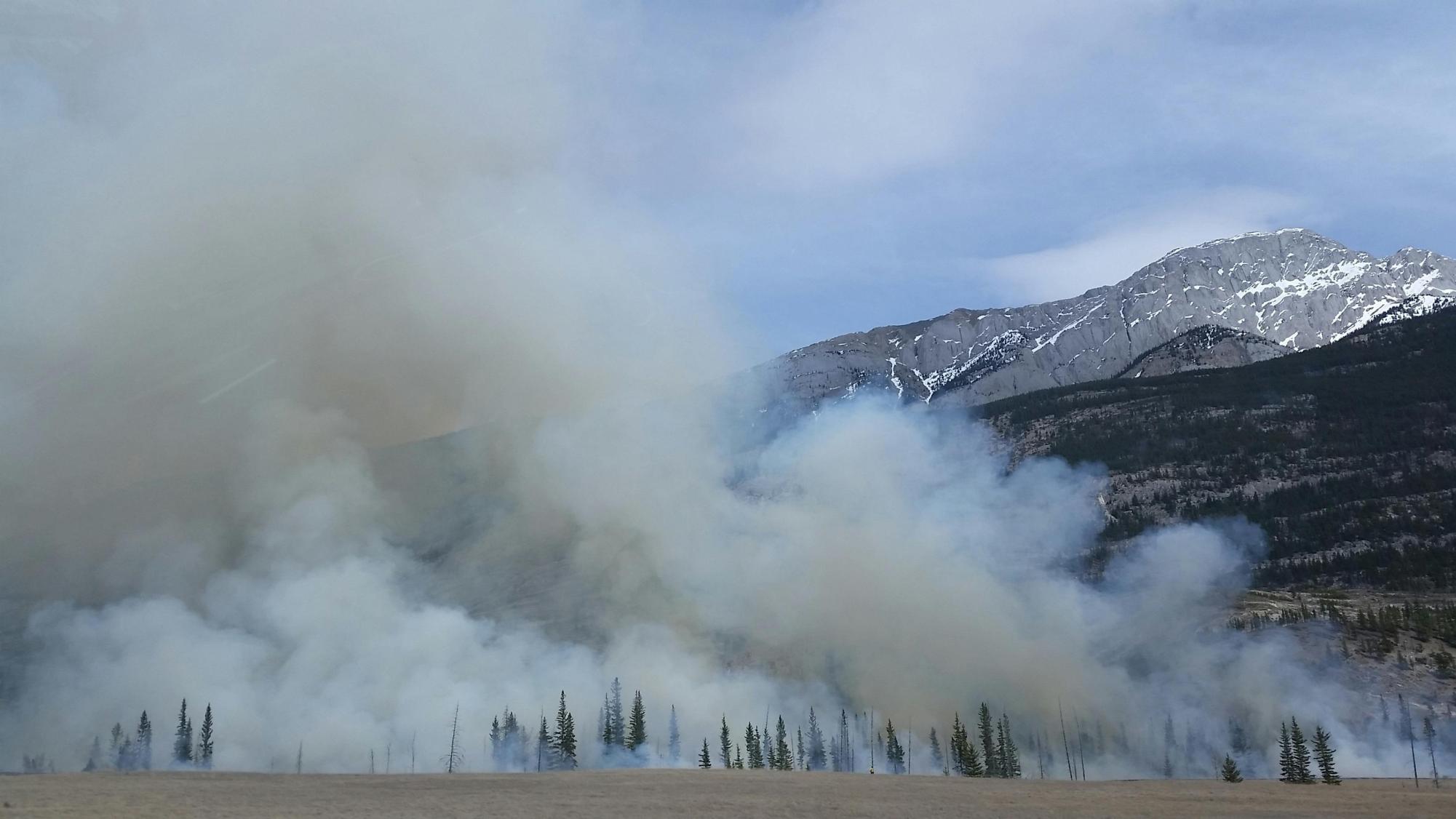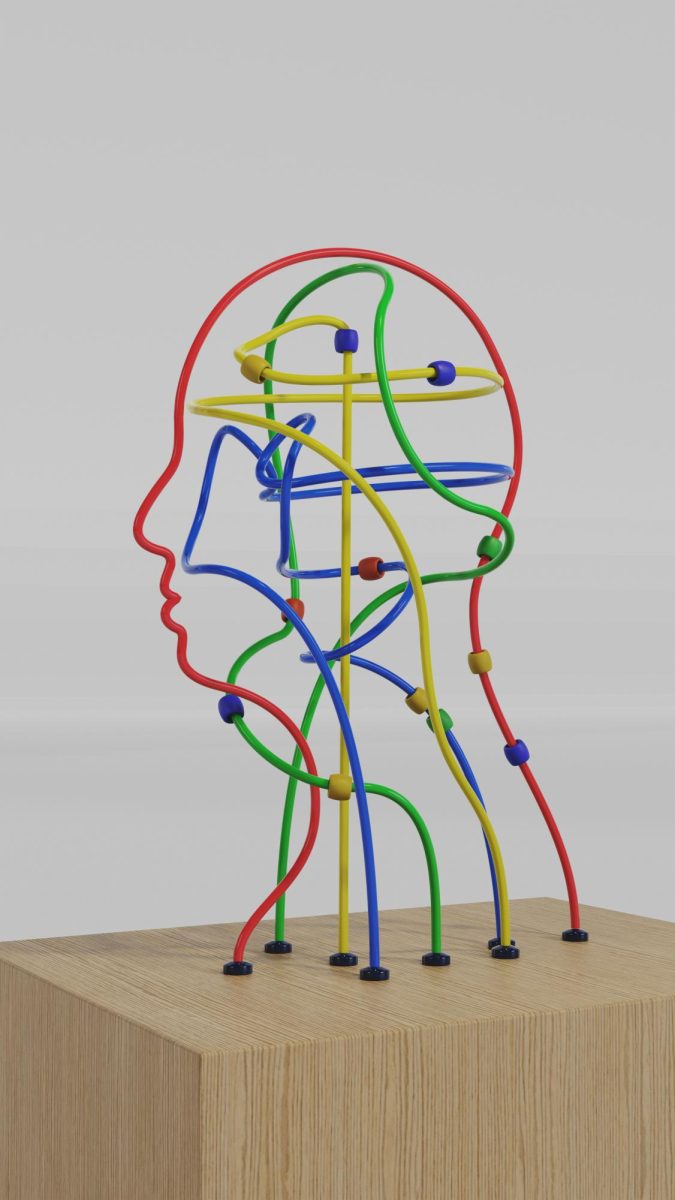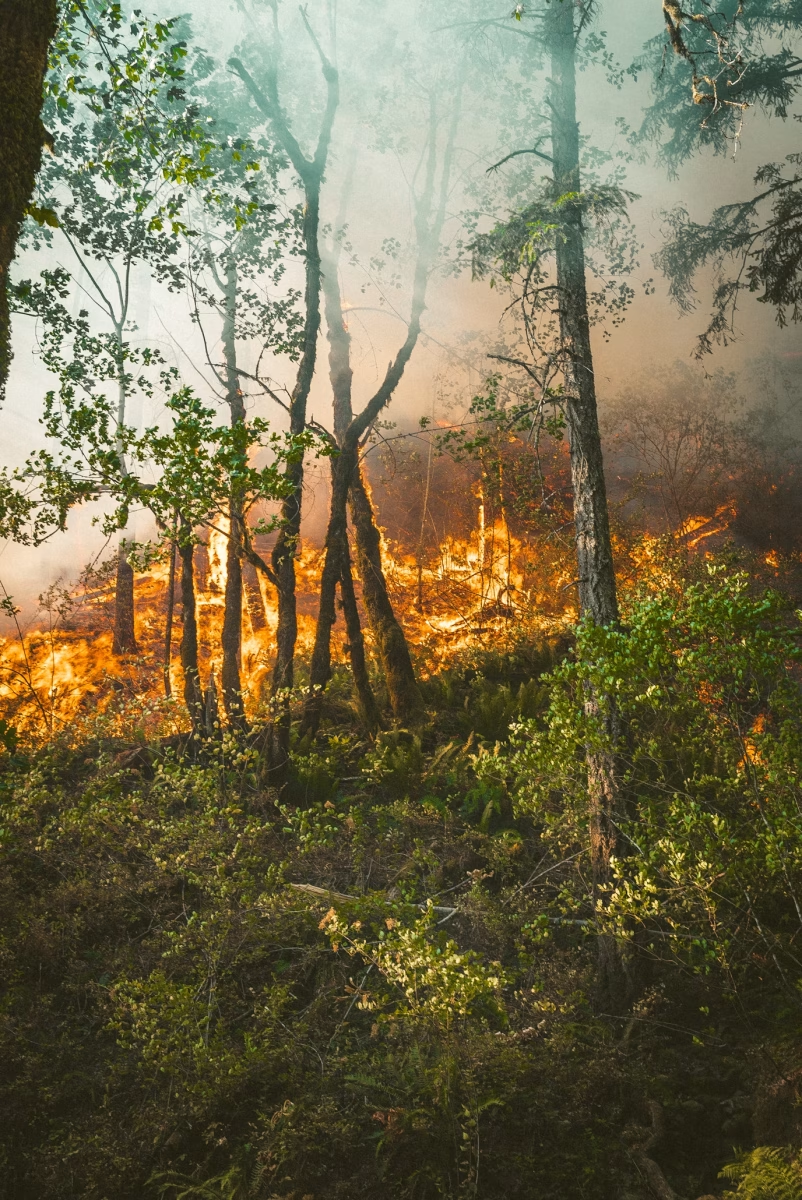Wildfire season is coming, again. And for many students and their families in Clackamas County memories of rushing to evacuate might come playing in their mind. With wildfires becoming an annual thing here in Clackamas County, the mental health impacts start to get overlooked. All the chaos and uncertainty can severely impact your mental health without you even knowing it, especially for younger people who’ve had to live through it, or might have to in the future.
The wildfire seasons in the west are becoming longer and more disastrous. Last year Oregon experienced one of its worst wildfire seasons ever. It was said that more than 1.9 million acres burned. The local news company, The Sandy Post, reported, Oregon’s Governor, Tina Kotek and other state emergency leaders encouraged Oregonians to prepare and take action since the upcoming fire season is about to begin and is supposedly going to be as bad or even worse than last year.
“It takes every level of the government, and every person, to help us keep fires small and away from communities,” Kotek said. “It starts with preparedness.”
The reason that the upcoming wildfire season could be worse than previous years is because it is forecasted that the summer months will have a below-average amount of precipitation in our area. This will lead to having drier conditions in months that are already concerned about its dryness.
“Every Oregonian needs to know the fire danger level where they live and please follow the rules and notices when you get them,” Kotek said.
Clackamas County residents don’t recognize the role wildfires are taking on them. People only talk about the physical stress that they go through, when the mental stress gives the long lasting consequences.
Fire Ecologist James Johnson, Professor at University of Oregon, explained about how this sort of trauma can affect someone’s mental health, and how the better prepared for it the better you might be. Especially people in a fire prone geological place, like Clackamas County.
“Wildfire definitely affects public health,” said Johnson. “We live in a fire prone planet and in a fire prone place, and this fire is here to stay.”
Mental Impacts
Wildfires can impact you not just physically, but mentally too. This can be because of the trauma that people have to go through during the fires, or when evacuating from them. This can also be because of the smoke itself.
A junior at Oregon City High School, Kenji Kasabuchi, has first hand experience with this sort of trauma. Kasabuchi is one of many students who had to evacuate during the extreme local fires in 2020. The 2020 fires were among the most devastating in the state’s fire history. It had significant destruction created by over 2,000 wildfires. These fires rapidly spread causing people to evacuate and act very quickly. There were a total of 40,000 residents that had to evacuate and had about 500,000 people placed with evacuation warnings.
Kasabuchi was one of the 40,000 pushed to move away from this home, in hope fire didn’t spread to it. Kasabuchi remembers feeling extremely nervous and on edge, since he didn’t know what was going to happen to his home.
“I remember the sky being orange and smokey,” said Kasabuchi. “I was a little scared because I didn’t know what was happening or going to happen.”
Checking the news to make sure wildfires aren’t happening near his community became a regular thing for Kasabuchi. This habit formed out of fear, not curiosity. The feeling of being informed became a new way of feeling secure and prepared. He does this especially when someone mentions wildfires.
“Even now sometimes I will check the fire maps, just to be sure,” said Kasabuchi. “I can’t help but wonder if another fire is going to start.”
Kenna Thomas, another junior at Oregon City High School, lives in the part of Clackamas County where she is surrounded by trees. During the 2020 fires, Thomas had to evacuate because property was in the level 3 evacuation. She was away from her house for a week. And when she came back from evacuation, she realised that the fire was so close to her house that part of her backyard was burnt.
This memory of the fire being so close to her house, replays in her head, especially during this time of year. Thomas is scared of having her only home burnt down by something that seems so simple to stop.
“I really worry about wildfires when the weather gets hot,” said Thomas. “I don’t want to have to go through the same sort of worrying that I did five years ago.”
The trauma that Thomas went through made her look at not just wildfires negatively, but the whole season all together.
“I believe that wildfires are bad,” said Thomas. “This season’s weather is the reason why these natural disasters are happening.”
This kind of situation can take a toll on someone, and the Harvard T.H. Chan’s School of Public Health reported on a recent case study by Youn Soo Jung, Mary M. Johnson, and Marshall Burke. This study proved this theory of wildfires causing mental impacts. The community in charge of this was a mixed group of scientists, practitioners, educators, and students that are dedicated to improving health and advising equality so that all people can thrive. This case study shows the connection between the 2020 wildfires and the toll they took on people’s mental health.
Their study suggests that the trauma can have a mental effect on the people who get put through the first hand experience of wildfires and evacuate from them. But it also talks about how trauma is not the only thing that can impact people’s mentality.
“This study suggests that – in addition to the trauma a wildfire can induce – smoke itself may play a direct role in worsening mental health conditions like depressions, anxiety, and mood disorders,” said John Rock, Professor of Climate and Population Studies and chair of the Department of Environmental Health.
This study also mentioned how the geological areas that are more prone to fires are more vulnerable to this mental health affects and how mental help in those areas should be given more attention, and Clackamas County is definitely one of those areas.
“We need to make sure everyone has access to mental health care during wildfire seasons, particularly the most vulnerable groups and particularly as wildfires become more frequent and severe as a result of climate change,” said YoungSoo Jung, a research associate in the Department of Environmental Health.
Johnson also believes that wildfires can impact your mental health. He believes that the stress and anxiety can force a mental and physical strain that your body isn’t fully prepared for.
“The effects of fire can vary,” said Johnson. “The smoke inhalation can have both a physical and mental effect on people.”
Mental Health Prevention
There are ways to prevent your mental health from being impacted. Since “fires are here to stay”, if you are able to prepare yourself and the ones around you, when the time comes it may not be as startling.
The Clackamas County Website is a resource where you can find information about the evacuations levels, public alerts, wildfire protection plans, and creating a defensible space. This is where you can prepare your property from wildfires, inside and out. The website can also be translated into eleven languages besides English to make it easier for anyone.
You can also look at the Oregon Department of forestry for more information as well. This website has an entire section dedicated to fires. It talks about the basic fire information, fire statistics, restrictions and closures, fire prevention, firefighting resources, burning and smoke management, and wildfire hazards. It also has attached emails where you can ask questions.
Bryan Mackender, Clackamas County Firefighter, mentions some of the things that the resources might advise you to do.
“Limit branches overhanging on the driveway in case you need to escape or a fire engine needs to get to your property,” said Mackender. “Also be prepared to leave quickly with valuables, such as important documents, clothes and food.”
It is also important to have a plan that was already previously discussed with your family members in case of a wildfire emergency.
“Have a good family plan to communicate and evacuate,” said Randall Johnson, Portland Firefighter. “Have bags ready and plan ahead.”
It’s honorable to have yourself and family ready in case of a fire emergency. But it is also good to be able to trust our local authorities when it comes to rescuing you in a time of need, in case your plan is not working out the right way.
“I feel as if our local authorities have a good handle on things. I believe that they have put together good resources for us as well,” said Travis Schmidt, local Clackamas County resident and father of a student from OCHS.
Johnson’s job, as a Fire Ecologist, studies the pattern, intensity and severity, and effects of forest respiration. But they can not fully predict when and where the wildfires can happen.
“Fire Ecologists live in a very problematic world, where we can talk about more or less risk, or more or less impacts or effects,” said Johnson. “But we also struggle to have the hard and fast predictions that society needs us to have.”
Since wildfires are linked to a “problematic world” you need to know what to do in case of this happening. “The way to react is to not react.” If you know what to do you will be calm and not overwhelmed with this emergency.
“People need to take action in context in their home, have documents, and evacuation routes,” James said.
Wildfires cause big problems in our area and as a community it’s important to be able to be ready for the consequences. Prepare and be aware.
“We need to start dealing with wildfires, the same way people in the midwest do with tornadoes,” said Johnson.







